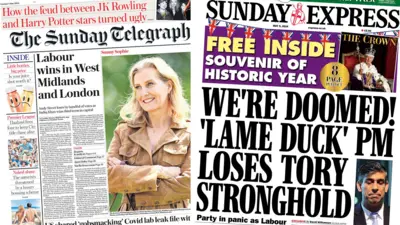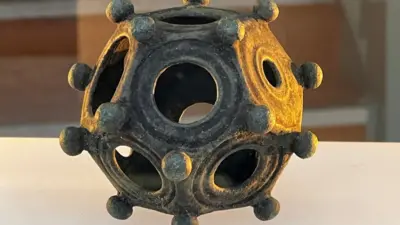We've updated our Privacy and Cookies Policy
We've made some important changes to our Privacy and Cookies Policy and we want you to know what this means for you and your data.
UK to drop US goods tariffs in bid for trade deal
Image source, Getty Images
The UK will drop tariffs against the US over subsidies for aerospace firms, in a bid to reach a post-Brexit trade deal with Washington.
In November, the EU hit $4bn of US goods with duties of up to 25% in retaliation for illegal state aid given to planemaker Boeing.
They will be suspended in the UK from 1 January - when the current post-Brexit transition period ends.
International Trade Secretary Liz Truss said the UK wanted to find compromise.
"As an independent trading nation once again, we finally have the ability to shape these tariffs," she said.
"Ultimately, we want to de-escalate the conflict and come to a negotiated settlement so we can deepen our trading relationship with the US and draw a line under all this," she added.
The fight over aircraft subsidies to Boeing and European rival Airbus pre-dates outgoing US President Donald Trump's time in office, but trade tensions between the two allies have become strained recently.
Donald Trump's administration hit the European Union (EU) with tariffs on $7.5bn worth of goods in retaliation for state support given to Airbus. Products such as Scotch whisky were affected by the ongoing row.
However, the ADS Group, which represents the UK aerospace industry, said on Wednesday that it was "disappointed" the UK made the decision without "securing some reciprocal action to resolve this dispute".
Airbus, which has a huge UK factory making aircraft wings, said that it still aims to "find a negotiated settlement of this long-standing dispute to avoid lose-lose tariffs".
'There are no guarantees'
The industry is being polite officially, expressing "surprise" and "disappointment", but is privately furious at what one top industry official said was a "capitulation" over the Airbus-Boeing dispute.
In January, Andrea Leadsom, then Business Secretary, told an Airbus audience the UK would continue to support EU efforts to negotiate a settlement over the dispute.
So why the change, and why now? The only plausible explanation is the government hopes to get a very late "mini deal" out of the departing Trump administration, and perhaps boost the slim odds of a Biden deal before his Congressional authority to do so expires in 2021.
There is a political carrot in the possible removal of US Scotch whisky tariffs, which could be used as electoral capital in Holyrood elections. But there are no guarantees. And, Team Biden shows no interest in doing trade deals with any nation quickly.
The UK employs tens of thousands in the Airbus supply chain, and the company is already having to deal with the impact of new frictions and barriers in trade with the EU. But now its arch competitor, Boeing, will be able to sell its planes 15% cheaper to the UK.
Trade Secretary Liz Truss clearly believes this sort of unilateral move will help "jump start" talks with the US. But Airbus is also a symbol of the pan-European co-operation that the UK wants to protect. Allowing the US to split the European position on this while make-or-break Brexit trade talks continue, will not go unnoticed in Brussels.
Major prize
Scotch Whisky Association chief executive Karen Betts described the announcement on Tuesday as "an encouraging step".
"It shows the UK government's determination to de-escalate the damaging transatlantic trade disputes that have seen Scotch whisky exports to the US fall by over 30% in the past year," she said.
"We now call on the US government to reciprocate by suspending the tariffs on UK goods stemming from the Airbus-Boeing dispute, so that industries in the UK and the US affected by this dispute can once again trade freely."
Image source, Getty Images
Downing Street views a trade deal with the US as one of the major prizes on offer as a result of the UK's exit from the EU.
But while the Trump administration said the UK would be "first in line" for a deal once it quit the bloc, President-elect Joe Biden has been cooler on the idea.
Steel protection
Earlier this year, he said any deal had to be "contingent" on respect for the Good Friday Agreement governing the Irish border.
And last week he said he would not enter any new trade agreement with a foreign power until the US has made "major investments here at home and in our workers and in education".
On Tuesday the UK said it would maintain tariffs imposed by the EU after President Trump put duties on foreign steel and aluminium in 2018.
"We are protecting our steel industry against illegal and unfair tariffs - and will continue to do so - but are also showing the US we are serious about ending a dispute that benefits neither country," Ms Truss said.
The EU said in November that it still hoped to settle the fight, and one trade official has said that President-elect Joe Biden's win might help "reboot" talks.
Analysts have previously suggested that Mr Biden will, at least, shy away from escalating the tariffs and might remove existing ones - as well as those applied to imports of steel and aluminium.
Top Stories
Features & Analysis
Most read
Content is not available








